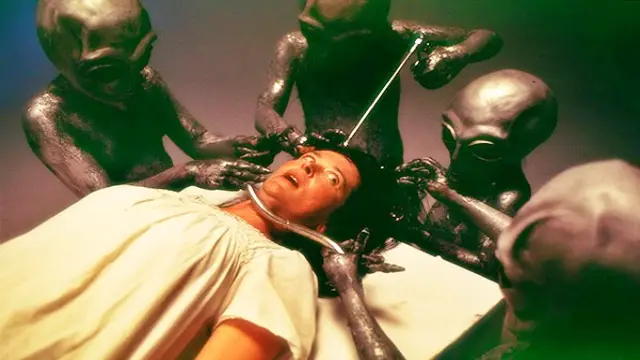nPostednon July 16, 2014
n
n
n
n
n
n
nIdanB. Wells was a teacher. She was a journalist. She was a wife andnmother. She was a public speaker. She helped found the NAACP. Herncareful research on lynching and her analysis of the reasons for thisnhorrifying practice cause some to call her a sociologist. She was annewspaper editor. Most importantly, Wells was active in movements fornwomen’s rights and suffrage, in the civil rights movement, andnespecially in the movement against lynching. n
n
n
n
nLynchingnis a horrible thing in which a mob kills someone, often by hanging,nsupposedly because that person committed a crime – but without antrial, usually without even a shred of evidence….because usuallynthe crimes were non-existent!
n
n
n
n
n
n
nWellsnwrote that one reason for lynchings was to control black people,nespecially black men, so that they would not compete with whitenpeople economically. She wrote that black economic progressnthreatened white Southerners in an economic way, but it also broughtninto question their firmly-held idea of black inferiority. With thendouble-whammy of economics and ideology, Wells was skeptical thatnwhite Southern society could give up the practice without beingnshamed into doing so. She traveled in Europe, especially in Scotlandnand England, trying to drum up support for her cause.
n
n
n
nShenended up being successful in starting several anti-lynching groupsnthat tried to exert pressure on the United States to guarantee thensafety of black people in the South. n
n
n
n
nInfound it interesting that Ida B. Wells started out life enslaved, thenchild of an enslaved couple. About half a year after she was born innMississippi (on this date in 1862), President Abraham Lincoln freednher and her family by issuing the Emancipation Proclamation. Wells’snfather was a master carpenter who worked for the advancement of blacknpeople, who involved himself in politics, and who even attended anuniversity. He had to drop out of college in order to help hisnfamily.
n
n
n
nBothnof Wells’s parents and her youngest brother died of yellow fever whennshe was just 16 years old, and she became a school teacher so thatnshe could keep her five younger siblings together as a family. Shenattended the same university her father had attended, although shenwas expelled after a confrontation with the school president!
n
n
n
n Indidn’t find out what that confrontation involved, but anothernincident was spelled out clearly in the bios I read. Wells wasntraveling by train from Memphis to Woodstock (a rural communitynoutside of Memphis), and she paid for the first-class ladies’ car ofnthe train. When a conductor ordered her to move to the smoker car,nWells refused to give up the seat she had paid for. She was forciblynremoved from the train.
Indidn’t find out what that confrontation involved, but anothernincident was spelled out clearly in the bios I read. Wells wasntraveling by train from Memphis to Woodstock (a rural communitynoutside of Memphis), and she paid for the first-class ladies’ car ofnthe train. When a conductor ordered her to move to the smoker car,nWells refused to give up the seat she had paid for. She was forciblynremoved from the train.
 Indidn’t find out what that confrontation involved, but anothernincident was spelled out clearly in the bios I read. Wells wasntraveling by train from Memphis to Woodstock (a rural communitynoutside of Memphis), and she paid for the first-class ladies’ car ofnthe train. When a conductor ordered her to move to the smoker car,nWells refused to give up the seat she had paid for. She was forciblynremoved from the train.
Indidn’t find out what that confrontation involved, but anothernincident was spelled out clearly in the bios I read. Wells wasntraveling by train from Memphis to Woodstock (a rural communitynoutside of Memphis), and she paid for the first-class ladies’ car ofnthe train. When a conductor ordered her to move to the smoker car,nWells refused to give up the seat she had paid for. She was forciblynremoved from the train.n
n
n
nAh!nShades of Rosa Parks and the bus-seat controversy—which happenednaround 80 years later!
n
n
n
nWellsndidn’t take it lying down. She filed a lawsuit against the Chesapeakenand Ohio Railroad – and she won! Unfortunately, the TennesseenSupreme Court soon overturned the decision.
n
n
n
nUntilnthe train incident, Wells had spent most of her time rearing hernsiblings and teaching school. After the incident, she began writingnand editing, speaking out and becoming an activist.
n
n
n
nIt’snamazing to me that so many people are able to transcend illness,ndeath of loved ones, lack of economic stability, prejudice, allnmanner of hardships—and still manage to advance themselves, theirnfamilies, and—in cases like Ida B. Wells—all of society. n
n
n
n
nAlsonon this date:
n
n
n
n
n
n
n
n
n
n
n
n
n
nGlobalnHug Your Kids Day
n
n
n
n
n
n
n
n
n
n
n
n
n
n
n
n
n
n
n
n
n
n
n
n
nWorldnSnake Day
n
n
n
n
n
n
n
n
n
n
n
n
n
n
n
n
n
n
n
n
n
n
n
n
n
n
n
n
n
n
n
nUnainen(Elderly Woman Day) on Kiribati
n
n
n
n
n
n
n
n
n
n
n
n
n
nPlannahead:
n
n
n
nChecknout my Pinterest boards for:
n
- n
-
nJulyn holidays
n
-
nJulyn birthdays
n
-
nHistoricaln anniversaries in July
n
n
n
n
nAndnhere are my Pinterest boards for:
n
- n
-
nAugustn holidays
n
-
nAugustn birthdays
n
- Historicaln anniversaries in August
nn
n
n
n
n
n
























